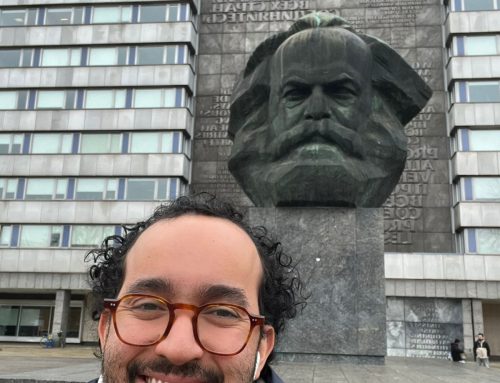“The research project proposed a comprehensive analysis of a structural flaw in the social sciences and humanities, which is similar to – or even part of – methodologic nationalism. A concept, which is proposed by many scholars of late-modern nationalism studies, migration studies, globalisation studies, global history, historical sociology, comparative literature, and which emerged as a specific form of an analytic problem in research of Central- and Southeast European ethnic minorities as well. Encountered first in the Hungarian minorities in the post-Yugoslav states, Romania, Ukraine and Slovakia, the problem is also present in the research on Albanian minorities in Macedonia, Serbia and Montenegro; Serbian minorities in Kosovo and Montenegro, the German minority in Italy, or even smaller communities like Czechs in Banat, Croats in Molise or Arbanasi in Zadar, as well as other ethnic or religious groups and metropolitan diasporas throughout the continent. A similar methodological perception can be seen in case of the Armenian, Jewish and Roma communities, as well as in the research of current migration flows and refugees throughout Europe. From the viewpoint of a state’s population, all these types of non-majority communities share a specific perception in research, which is insular, often simplistic and analytically insufficient.
Imagining the inter-state system as a set of bordering containers, the country in which the given minority lives is considered as the elementary frame of research. This way however, neither the findings nor the conclusions did usually not extend beyond state borders, while in most cases, they stayed within the inhabited region of the given minority. Furthermore, this insular (self)perception is hallmarked by a discourse of exclusion, oppression, denial and rejection throughout the 20th century, which in turn is almost without exception understood as a unique signifier of the researched minority. These, and a number of other delimiting circumstances left only the given nation-state as the sole point of reference, moreover as an agent of exclusion from participation, and denial of rights. This resulted in an archipelagic logic of ethnic minorities throughout the 20th century and determined most research trajectories since the early 1920’s, up until contemporary scholarly work. Traditionally, research on ethnic minorities has been mostly done in the fields of history, ethnography and literature, supplemented by sociology, political science, art history and architecture in the past three decades. It addressed folklore, literary production and a number of historical topics, while there is a focus since the 1990’s on demography, European integration and peace-building as well. Nevertheless, this structural flaw can be traced throughout the 20th century until today, and it can be accepted to some degree within the hard inter-state system of borders in the era of modern, industrialised nation-states. It is however more and more questionable in the last decades, when cross-border cooperation, migration and flow of commodities increases, and when the rejections from the side of majorities are rendered irrelevant.
The aim of my research is thus, to point out the deficiencies in the (self)perception of minorities, by which the inter-state system is imagined as a combination of bordering containers, with minorities as secluded subsystems of these societies. Moreover, the inquiry attempts to contest the binary structure of majority-minority, address it beyond methodologic nationalism, and by deconstructing the conventional perceptions of time, space and social realities, lift up the narrow composition of the conceptual imagination in a world, where (various) ethnicities are more interconnected, than ever before. By questioning these routine assumptions, I will tried put them in a historical perspective as well, and define a framework from which research on minorities should be emancipated.”
 Oszkár Roginer was born in 1986, in Novi Sad, Yugoslavia, where he studied Hungarian Studies at the University of Novi Sad (Serbia). After receiving his diploma in 2009, he moved to the University of Pécs (Hungary) in order to pursue his PhD in Literary Sciences, and defending his thesis in 2016. In 2014 he started an International Joint Degree MA in Cultural Sociology at the University of Zadar (Croatia) and the Karl Franzens University in Graz (Austria), and obtaining his MA in 2016. He is currently a PhD candidate at the Centre for Southeast European Studies in Graz, where he is working on his thesis on the construction of the Hungarian minority literary field in the post-Habsburg space. Between 2009 and 2014 he worked as a radio journalist and theatre critic in RTV Vojvodina, and in the daily newspaper Magyar Szó in Novi Sad. His most important publications include the monographs A város mint (ellen)érv. [The City as a (counter)argument]. (2015), and A jugoszláviai magyar irodalom terei – A (poszt)jugoszláv magyar irodalom és a téralapú közösségi identitás-konstrukciók viszonya a sajtóban (1945–2010). [Terrains of Hungarian Literature from Yugoslavia – Correlations between (post)Yugoslav Hungarian Literature and the constructions of spatial collective identities in the press (1945–2010)]. (2019) His academic interests lay in Hungarian minority literature, Hungarian press history of Yugoslavia, geocriticism, historical literary sociology, collective identities, memory studies.
Oszkár Roginer was born in 1986, in Novi Sad, Yugoslavia, where he studied Hungarian Studies at the University of Novi Sad (Serbia). After receiving his diploma in 2009, he moved to the University of Pécs (Hungary) in order to pursue his PhD in Literary Sciences, and defending his thesis in 2016. In 2014 he started an International Joint Degree MA in Cultural Sociology at the University of Zadar (Croatia) and the Karl Franzens University in Graz (Austria), and obtaining his MA in 2016. He is currently a PhD candidate at the Centre for Southeast European Studies in Graz, where he is working on his thesis on the construction of the Hungarian minority literary field in the post-Habsburg space. Between 2009 and 2014 he worked as a radio journalist and theatre critic in RTV Vojvodina, and in the daily newspaper Magyar Szó in Novi Sad. His most important publications include the monographs A város mint (ellen)érv. [The City as a (counter)argument]. (2015), and A jugoszláviai magyar irodalom terei – A (poszt)jugoszláv magyar irodalom és a téralapú közösségi identitás-konstrukciók viszonya a sajtóban (1945–2010). [Terrains of Hungarian Literature from Yugoslavia – Correlations between (post)Yugoslav Hungarian Literature and the constructions of spatial collective identities in the press (1945–2010)]. (2019) His academic interests lay in Hungarian minority literature, Hungarian press history of Yugoslavia, geocriticism, historical literary sociology, collective identities, memory studies.
Seminar with Oszkár Roginer in dialogue with UNIRI CAS SEE fellows was held at the University campus in Rijeka on December 6, 2019.




